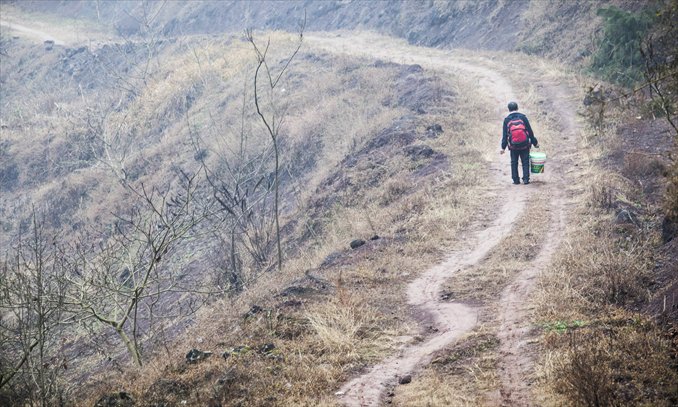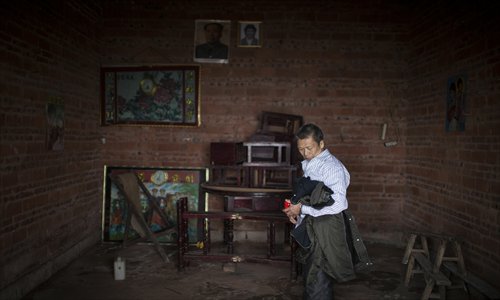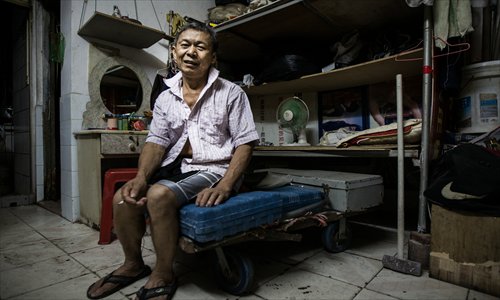Hollow grounds




Though Spring Festival is a time for family reunion, an increasing number of migrant workers, especially those who are young and from the countryside, is not returning home for the holidays.
As a result, it's not uncommon to see a village cold with darkened houses, their courtyards overgrown with weeds and full of furniture growing mold.
Usually Wang Shanyun, 61, a native of the mountainous village of Yongli, Kaixian county, Chongqing Municipality, feels more comfortable spending the holiday in his small rented apartment 2,000 kilometers south in Shenzhen, Guangdong Province.
As one of the first generation of villagers to leave seeking jobs in urban areas, Wang worked in construction for 20 years.
After his wife divorced him in 2007, his son, now 24, followed him to Shenzhen and recently landed a job at a toy manufacturer.
However, this Spring Festival is different. Wang decided to return home with his savings of over 10,000 yuan ($1,605) to find a bride and stable job for his son. However, this conflicts with his son's plans to find a wife and career in the city.
"What use is there going back? There's nothing left at home!" his son complained.
Their one-storey brick house now seems deserted, almost nothing but bare walls.
Through Wang's persistent efforts, father and son finally set out for home on January 30, nine days before New Year's Eve.
After a 33-hour train trip, half-hour taxi ride and one-hour mountain hike, the two arrived home.
Besides a pair of portraits of Chairman Mao and Wang's deceased mother, there were just a few scattered items; the desk covered with dust and bed choked with mold.
After bringing in the luggage and looking around, Wang walked out for a smoke. "We'll stay for three more days at most after the New Year. This place is not fit to live in," he lamented.
With the increased influx of farmers to city centers, the elderly, children and farmland are left behind. And as older generations pass away and children leave for the cities with their parents or employment opportunities, the countryside is becoming increasingly empty.
A research team led by Liu Yansui, from Institute of Geographic Sciences and Natural Resources Research, Chinese Academy of Sciences, released a study last year that estimates a rural population drain has occurred in between 25 and 33 percent of villages nationwide.
Experts express concern that the trend will pose a threat to rural culture as the idea of family changes and rural depression deepens.
In its first policy document of 2013, the central government called attention to this "village hollowing" phenomenon and urged the strengthening of rural social management to remedy the issue.
Global Times